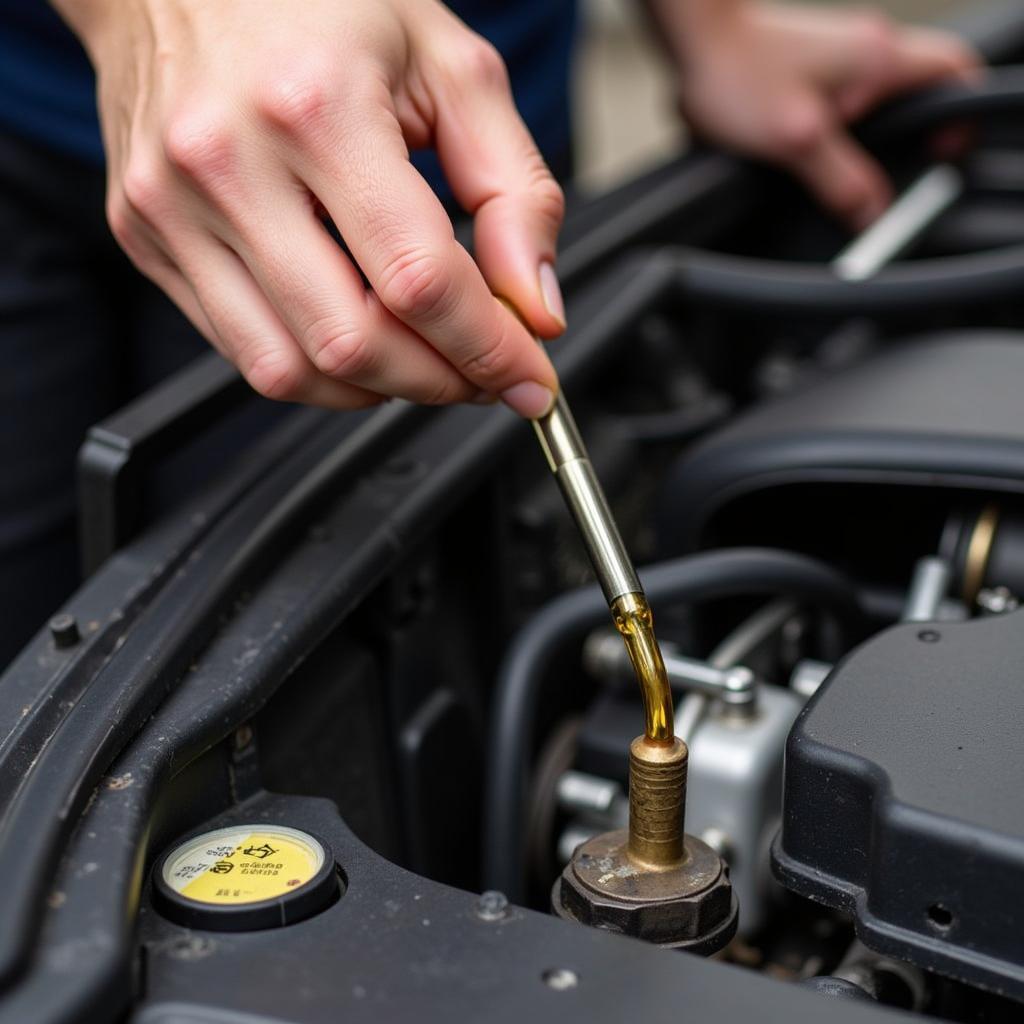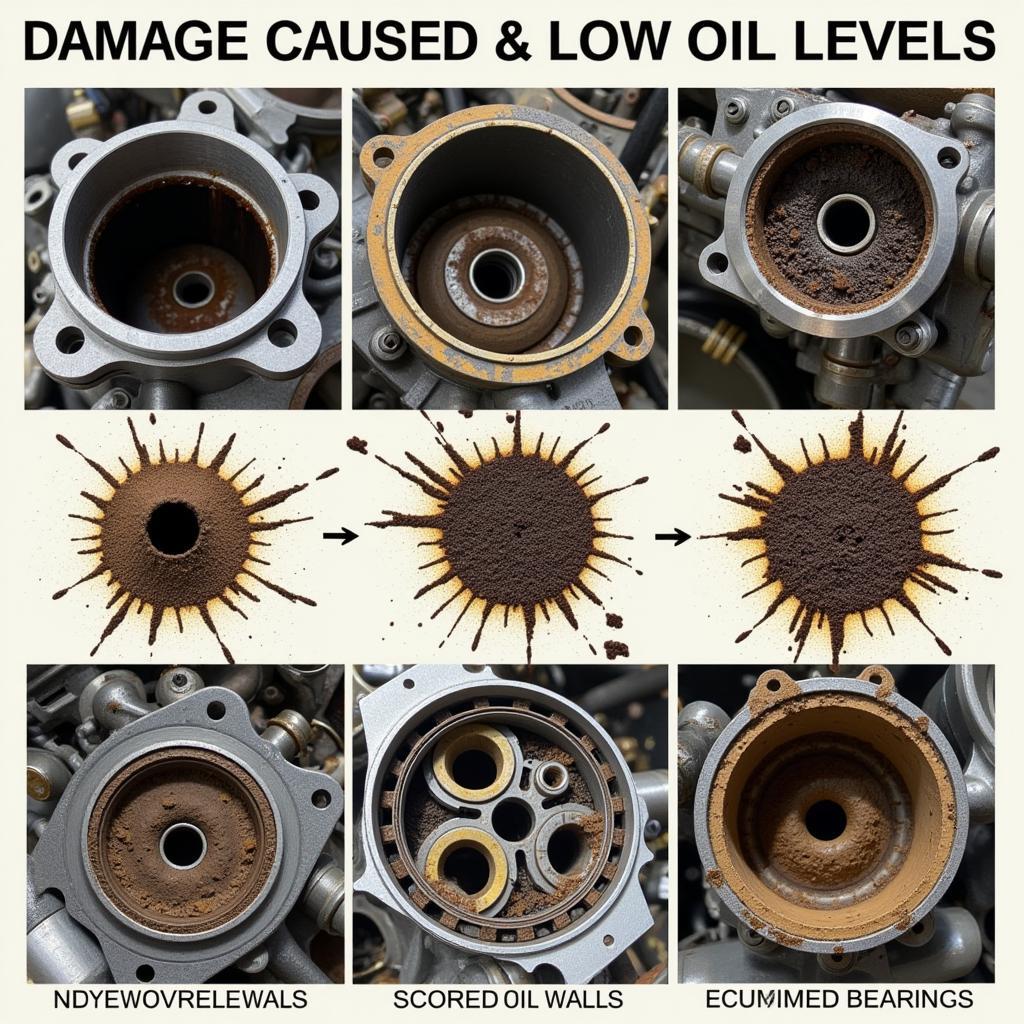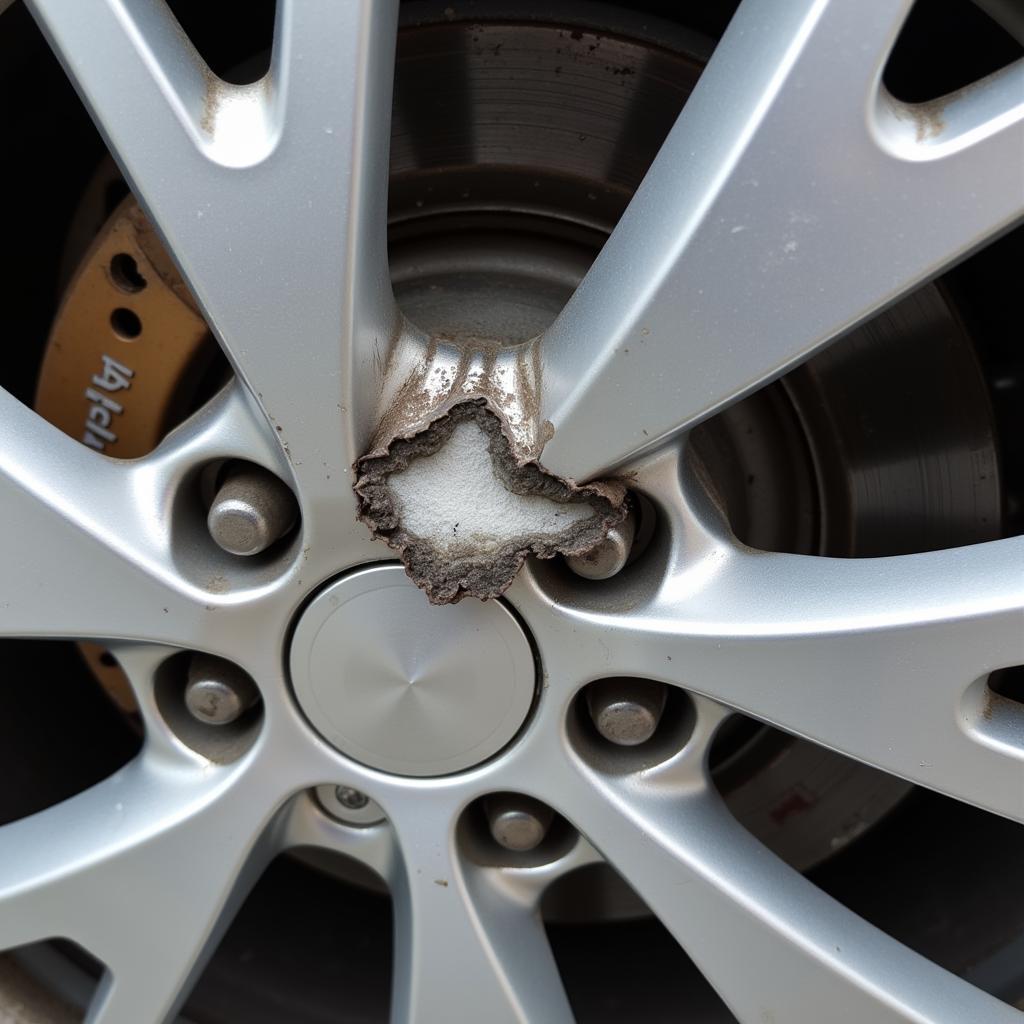Excessive oil consumption can be a sneaky issue, quietly robbing your engine of its lifeblood and your wallet of its contents. Knowing how to find out if your car has oil consumption problems is crucial for maintaining its health and preventing costly repairs down the line. This article will guide you through the process of diagnosing oil consumption issues, covering everything from simple checks to more advanced diagnostic techniques.
Checking your oil level regularly is the first and most important step in identifying potential oil consumption problems.  Checking Car Oil Level Regularly A low oil level is a clear indicator that something might be amiss. Remember, adding a quart of oil every few weeks isn’t normal for most modern vehicles. If you find yourself topping off frequently, then you likely have an oil consumption problem.
Checking Car Oil Level Regularly A low oil level is a clear indicator that something might be amiss. Remember, adding a quart of oil every few weeks isn’t normal for most modern vehicles. If you find yourself topping off frequently, then you likely have an oil consumption problem.
Understanding Oil Consumption: What’s Normal and What’s Not
While some oil consumption is normal for any engine, excessive consumption can indicate a serious problem. Factors like driving style, engine age, and oil type can influence consumption rates. common engine problems in cars often stem from underlying oil issues. However, a general rule of thumb is that consuming more than a quart of oil every 1,000 miles is a cause for concern.
What Causes Excessive Oil Consumption?
Several factors can contribute to excessive oil consumption. Worn piston rings, valve seals, or a faulty PCV valve are common culprits. Leaks, while less frequent, can also be a significant source of oil loss. These can originate from the oil pan gasket, valve cover gasket, or even the rear main seal.
How to Find Out if the Car Has Oil Consumption Problems: A Step-by-Step Guide
-
Check Your Oil Level Regularly: Make it a habit to check your oil level at least once a month. Park on a level surface, let the engine cool down, and then remove the dipstick, wipe it clean, reinsert it, and check the reading.
-
Keep a Logbook: Record your oil level readings, the date, and your vehicle’s mileage. This log will provide a clear picture of your oil consumption over time.
-
Perform an Oil Consumption Test: The most accurate way to determine oil consumption is to perform a controlled test. After an oil change, drive a specific distance (e.g., 1,000 miles) and then recheck your oil level. The difference will reveal your consumption rate.
-
Inspect for Leaks: Look for oil stains on your driveway or garage floor. Check the engine bay for visible leaks around the oil pan, valve cover, and other areas.
-
Consult a Mechanic: If you suspect a problem, take your vehicle to a qualified mechanic. They can perform more advanced diagnostics, such as a leak-down test or pressure test, to pinpoint the source of the issue.
Signs You Might Have an Oil Consumption Problem
- Low oil level on the dipstick.
- Frequent need to add oil.
- Blue smoke from the exhaust.
- Oil smell inside the car.
“Regular maintenance and addressing oil consumption issues promptly can significantly extend the life of your engine,” says John Miller, a seasoned automotive engineer with over 20 years of experience.
new baleno car problems can sometimes manifest as excessive oil consumption, so it’s crucial to differentiate between model-specific issues and general engine problems. Knowing the common issues associated with your particular vehicle can be very helpful.
Why is Addressing Oil Consumption Important?
Ignoring oil consumption problems can lead to serious engine damage, including premature wear, overheating, and even catastrophic failure.  Engine Damage Due to Low Oil By identifying and addressing the issue early, you can save yourself significant time, money, and frustration.
Engine Damage Due to Low Oil By identifying and addressing the issue early, you can save yourself significant time, money, and frustration.
2012 honda civic car problems sometimes include oil consumption issues. Researching common problems for your specific car model can be a valuable resource.
Conclusion
Knowing how to find out if your car has oil consumption problems empowers you to take proactive steps to maintain your vehicle’s health. Regular checks, diligent record-keeping, and seeking professional help when necessary are key to preventing costly repairs and extending the life of your engine. Remember, addressing oil consumption problems promptly is crucial for ensuring your car runs smoothly and reliably for years to come. For further assistance and expert advice on car maintenance and repair, feel free to connect with us at AutoTipPro. Our phone number is +1 (641) 206-8880 and our office is located at 500 N St Mary’s St, San Antonio, TX 78205, United States.
hyundai cars common problems can vary by model, but oil consumption is a potential concern across many vehicles. Understanding your car’s specific needs can help you identify and address potential issues proactively.
what is the problem with toyota cars can be a valuable question to ask when researching potential oil consumption problems or other common issues related to specific models.
“Prevention is always better than cure, especially when it comes to car maintenance. Regular checks and early intervention can save you a lot of trouble down the line,” adds Sarah Chen, a certified mechanic specializing in engine diagnostics.





Leave a Reply